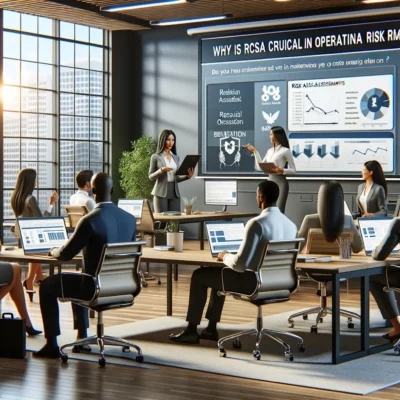A risk event is an unexpected thing that can stop operations and impact outcomes especially in event management. Identifying risks is key to planning.
This means a systematic review of all possible risks and their implications. Prioritisation is important as it directs focus to the biggest risks. Mitigation strategies including contingency plans are crucial to minimising the impact of these events.
Understanding internal and external risks helps with preparedness. Managing risk events ensures a safe environment and a good outcome. Keep reading to find out more about risk management.
Quick Facts
- A risk event is an unexpected thing that will negatively impact operations or event execution.
- Risk management is about identifying, assessing and prioritising risks.
- Contingency plans are key to addressing high risk and minimising impact.
- Internal risks such as crowd dynamics and food handling must be considered to protect attendees.
- Proactive strategies will help with event success by anticipating and mitigating risks.
What is Event Risk
Event risk is about recognising the likelihood and potential for unexpected things to impact and affect an organisation’s operations and outcomes.
Risk management for events requires a full risk assessment to identify what could go wrong with the organization and planned activities for opportunity event.
Event organisers must have risk management strategies in place which include proactive planning and a contingency backup plan, for the next unexpected event.
This planning is key to safety and crowd management during live events.
By anticipating risks you can minimise the potential impact, and the event will run smoothly.
In the end understanding event risk is part of successful event management and protects against potential disruptions that could impact the event and the organisation.

The Event Risk Management Process
The event risk management process is a systematic approach to identifying, assessing and mitigating risks associated with specific events to protect organisational objectives and operations. This proactive approach is key to minimising disruptions and getting good business outcomes.
The process includes:
- Risk Assessment: Identifying risks and their impact on operations.
- Risk Prioritisation: Evaluating risks to see which need attention and resources now.
- Risk Mitigation: Developing strategies including emergency response plans to manage the risks.
A full event risk management and contingency plan is key for event planners to prepare for the unknown and get a smooth outcome and organisational resilience.
Identifying and Prioritising Event Risks
Identifying and prioritising event risks is critical for event planners to make sure potential threats are managed and minimised.
A full event risk assessment that will allow planners to identify and assess various event risks including safety risks, financial risks and reputational risks.
By assessing the likelihood and potential impact of each risk event planners can prioritise which risks to address first. High risk requires immediate attention, low risk can be addressed later.
Having contingency plans for the possibility of these high risk events means you have measures in place to react if things go wrong.
In the end this systematic approach to identifying and prioritising risks will help event planners create safer and more successful events with less disruptions.
Managing Event Risks
Risk management is not just about the event risk refers about identifying and prioritising potential threats but also developing strategies to mitigate those risks and get a good outcome. A full risk management plan should include:
- Emergency Response Plans: Clear procedures for various scenarios including unexpected weather to react quickly.
- Food Safety: Rigorous food safety guidelines to protect attendees and prevent health incidents.
- Training: Ongoing training with stakeholders including vendors and suppliers to make sure everyone knows their role and the impact of the identified risks.
Safety Risks in Events
Managing safety risks is key to a safe and successful event as there are many hazards from crowd dynamics, food handling, fire hazards and equipment installation.
Event management requires a full assessment of the potential safety risks including food safety and electrical installation safety. Working with safety experts will help planners identify vulnerabilities and develop safety protocols.
Having emergency response plans in place is critical so you can react quickly in an incident. And proper crowd management measures must be in place to manage large numbers.
Medical supplies should be on site and a backup plan in place for the unexpected. By addressing these you can reduce the risk events.
Crisis Communication Planning
As well as managing safety risks a crisis communication plan is critical for managing emergencies during events. This is part of the event risk management plan to make sure all stakeholders including vendors are on the same page.
Crisis communication planning includes:
- Communication Process: Define how information will be communicated during a crisis including social media and press releases.
- Risk Assessment: Regularly review the potential risks that could impact the event and update the communication plan.
- Stakeholder Engagement: Work with all relevant stakeholders to get everyone in the organisation fully understand and implementing the crisis communication strategies.
Risk Management Tips
Full risk management is key for event organizers and planners to get a good outcome and safe for all.
Event risk is the we address potential risks and hazards that can occur during an event so you need to identify and prioritise risks.
Planners should develop mitigation strategies and get stakeholders including vendors and suppliers involved.
Training and drills are key to getting staff to react quickly to events and minimise reputational damage.
And having adequate insurance coverage will protect against the unexpected and enhance the attendee experience by having safety access.
Regular review and updates of the risk management plan will keep it current and relevant.
Technology Risks
Managing technology risks is key for event planners to keep their operations safe and reliable throughout the event lifecycle. With threats like data breaches, cyber attacks and technical failures it’s essential to have strategies in place.
Working with a risk consultant will help you identify vulnerabilities and develop emergency response protocols including:
- Cybersecurity: Have robust security systems in place to protect sensitive information.
- Clear Signage: Make sure attendees know what to do in case of technical failure to keep them safe.
- Regular Equipment Checks: Keep production equipment in good working order to minimise failure risks.
External Risks
Managing external risks is critical for event planners to protect their events from the unexpected like unpredictable weather, natural disasters and security threats.
These external risks require emergency response plans and business continuity insurance plans.
Working with stakeholders including vendors and suppliers is key to make sure everyone involved is aware of the risks and the solutions.
Regular training and drills should be done to get everyone prepared for external risks like a natural disaster disasters or terrorist attacks.
This pro active approach will not only keep everyone safe but also create a culture of preparedness and reduce the possible impact of external risks on the event.
Ultimately it’s all about management.

Event Risk Management Tools and Resources
Use a range of event risk management tools and resources to anticipate and mitigate risks.
By having a structured approach you can manage food poisoning, fire risks and trip hazards from heavy equipment.
Key resources:
- Risk Assessment Templates: These will help you identify and score the risks at your event.
- Crisis Communication Plans: Communication with stakeholders including local hospitals is critical in emergencies.
- Training and Drills: Regular training will get staff to react to human error and other unexpected events.
Case Studies and Examples
Looking at case studies and examples of event risk management will give you practical tips and insights to help with your planning.
For example looking at how other event organisers of the same event venue have dealt with the traffic issues on busy roads will give you some useful learnings.
Background checks on aid staff will keep sensitive information safe.
Events that had safe disability access showed the importance of inclusion.
In one case a quick response to a power outage minimised the disruption, so contingency planning is key.
Summary
In short event risk management is critical for any gathering to be safe and successful. By understanding the risks you can proactively develop solutions to mitigate them and protect your market share and reputation.
Key things to consider when managing event risks:
- Identify Potential Risks: Know the risks, like lifting heavy equipment and accidents can happen.
- Develop Contingency Plans: Have plans in place to address issues that will impact the event, so you can respond quickly.
- Continuous Monitoring: Monitor the situation to pick up new risks as they arise and adapt to changing circumstances.
FAQs
What are the common types of risk events in different industries?
Common risk events that occur across industries are operational failures, financial losses, regulatory breaches, cyber threats, natural disasters, supply chain disruptions and reputational damage, each require different risk management strategies to mitigate the impact.
How do cultural factors impact event risk perception?
Cultural factors impact event risk perception by shaping individual beliefs, values and societal norms. These will influence how risks are identified, scored and communicated and ultimately affect how decisions are made and responded to threats.
What role do stakeholders play in risk management?
Stakeholders play a key role in risk management by bringing different perspectives, resources and expertise. Their involvement in risk, will help with decision making so risks are identified, scored and mitigated and ultimately organisational resilience and success.
Are there certifications for event risk management professionals?
Yes there are several certifications for event risk management professionals including the Certified Risk Manager (CRM) and the Certified Meeting Professional (CMP). These will help with your expertise and credibility in managing risks at events.
How can technology trends impact event risk management strategies?
Technology trends like data analytics and artificial intelligence will help with event risk management strategies by enabling real time monitoring, predictive insights and better decision making and ultimately a more proactive approach to managing risks.

Summary
Event risk management is critical for any event to be safe and successful.
By knowing the types of risks, having a process in place and using the right tools you can identify, prioritise and mitigate the threats.
And recognising external factors and using case studies will help with natural disaster preparedness.
A proactive approach to risk management will protect the participants and the the event venue management itself.

Chris Ekai is a Risk Management expert with over 10 years of experience in the field. He has a Master’s(MSc) degree in Risk Management from University of Portsmouth and is a CPA and Finance professional. He currently works as a Content Manager at Risk Publishing, writing about Enterprise Risk Management, Business Continuity Management and Project Management.

